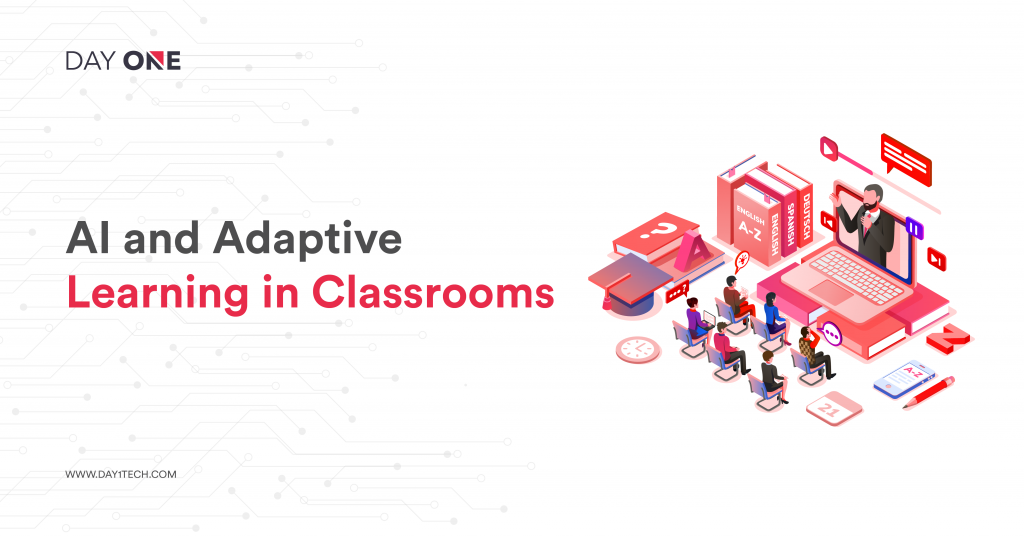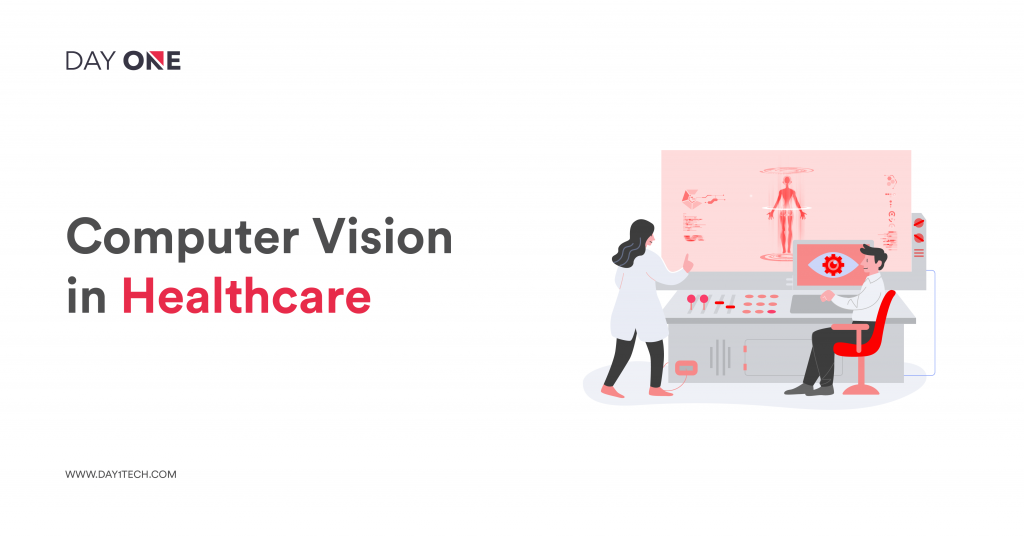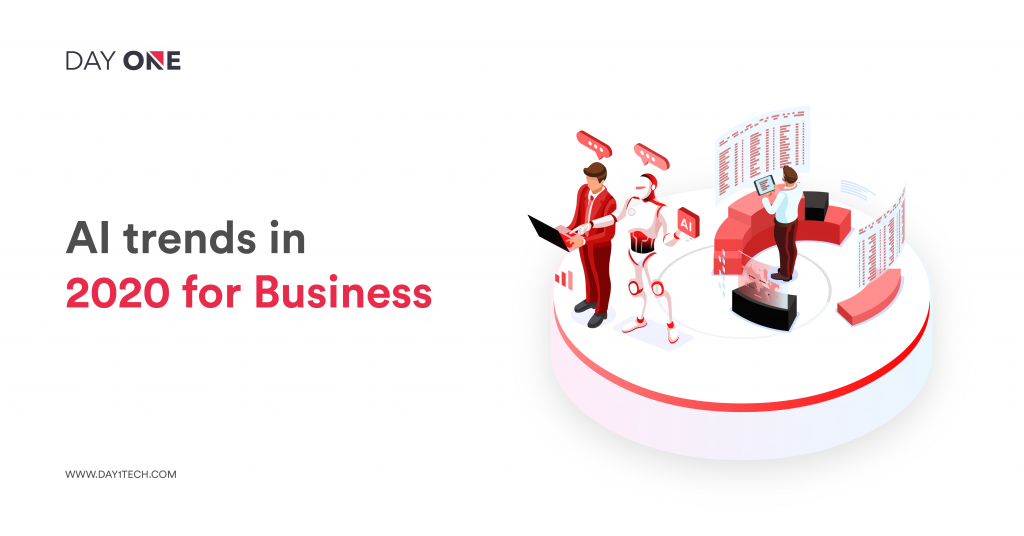How AI and Adaptive Learning is shaping the Classrooms of future
admin
Artificial Intelligence
June 3, 2021
5 min read

“Education is the passport to the future, for tomorrow belongs to those who prepare for it today”-Malcolm X
When we think of the words ‘classroom’ and ‘education’ our cognitive minds almost automatically think of schools, and kindergartens or even universities. But naturally, that’s a very limited perspective of education. Learning is a lifelong process, and there is something to learn at every stage of life. And with changing times, the culture of learning has accelerated and ventured into corporates as well. With the facilitation of Artificial Intelligence in Education (AIEd) systems, learning today is smarter, leaner, online and global. With minimal reliance on physical location or learning material (books for instance), the modern learner is no stranger to next-gen technologies (including adaptive learning).
With learning being redefined in terms of its methodology and student-base let’s have a look at how technologies like AI are shaping education and how adaptive learning and immersive technologies are setting new standards.
What is Adaptive Learning?
Adaptive learning or adaptive teaching is the method of providing customized educational content to students based on their individual learning capabilities. It is in fact the ability to provide personalized services with AI in educational and corporate settings. The learning platforms uses computer algorithms, such as Artificial Intelligence and are trained to understand the strengths, weaknesses, learning styles, and proficiency of the student before providing them with the necessary learning material and resources
In this respect there is also the equally popular concept of adaptive e-Learning that’s more focused on providing a similar experience to online students.
Artificial Intelligence and Adaptive Learning: The future of personalized learning
“Everybody’s a genius. But, if you judge a fish by its ability to climb a tree, it will live its whole life believing that it is stupid”-Albert Einstein
Human intelligence, living conditions, environment – these vary between student to student and are critical in a student’s learning cycle. When it comes to education, the conventional idea of a single classroom or one-size-fits-all is rightly losing its lustre. People are different and no single learning style is suitable for all. This is where technology, especially AI can help in rendering content that is catered to the need of the student, either in schools or even in corporate setups. Together with immersive technologies and AI, data on individual student’s learning pace and ability can be collated in a cost-effective way, and shared to make learning enjoyable, fun and engaging.
Take the example of the Singapore based Vere360 that makes use of Artificial Intelligence and VR to offer quality education for social issues and skills development. The platform partners with several knowledge partner clients to build educational content that students (schools and vocational) can access through a Virtual Reality education app.
Another interesting example of AI based Chatbot in education is that of Botsify, a chatbot that assesses students by showing pictures, videos, texts regarding a specific topic, and asking questions. Such AI tools for education create an environment of personalized learning, adapting based on the students intellect. The smartest students in the class would feel challenged, while the lesser smart students would not feel disheartened as their learning styles are recognized and content is structured focused on their strengths and learning styles.
Simplifying how AI based Adaptive Learning works
When talking about adaptive learning technology there are some key ideas to keep in mind:
- The quality of educational content being used
- The ability of the AI based platform to identify, assess and adjust to student’s progress
- Tracking progress, measuring performance and leveling up based on results
Let’s understand this with an example of how adaptive teaching works. Suppose, during a MCQ based assessment, students in Grade 1 are to name the capital cities of all the 50 (52) U.S. states. On completion, the platform would track the answers (right and wrong), grade the test, time spent on it and any other pattern indicated, for each individual student. The data would be stored, and shared with the students/teachers/parents for insights on performance.
The AI and machine learning algorithms in play will then track and analyse the data to interpret the learning style, level of intelligence and other metrics for each student. Based on that, the platform will adjust and upgrade the level of assessment/learning material to be provided to the student, and/or provide recommendations. As such, for the smarter students, Assessment 2 could be based on the landscape of the states, whereas a map-based visual assessment of the same city-state assessment could be shared with the less smarter students.
The role of immersive technologies in teaching, especially AR/VR based learning and training environments, is making significant improvements in being able to customize learning and make it more enjoyable. The idea is for platforms to gauge the student’s capabilities and offer adapted learning methods to suit them. The role of AI powered adaptive solutions come into play here, where the system can learn from experience without manual intervention.
Applications of Adaptive Learning for Students: Enhancing experiences with AI and Immersive Tech
Human learning is evolving and the benefits of AI in adaptive learning is rapidly on the rise. Tailored learning systems are replacing conventional methodologies as more and more institutions are taking to orchestrated interactions.
For instance, preparing for university admissions is never easy, especially for students who don’t have the means (financial/technology) or access to quality resources. To facilitate that, BioBeyond, came up with an adaptive learning platform on introduction to the university-entry level biology course. The online course consists of eight units and the application would provide feedback on which sections the student needs to work on.
To assess the platform, SRI Education conducted an evaluation of BioBeyond, across four different institutions. The course, specially designed for underprivileged students involved 1,800 participants. The results found that not only did the platform help students to scale their grades by up to half a letter grade, but also that it improved performance irrespective of gender.
There are several other real case examples of implementing AI in learning management. Rocketship Education, for instance, an elementary school in San Jose, CA, used Dreambox technology, an adaptive learning software to provide individualized instructions to its students.
In current times, many institutions are choosing AI chatbot based e-learning platforms to provide students the flexibility to learn at their own pace and time. However, Rocketship Education’s challenges were different. Like many schools, Rocketship Education faced the perennial challenge of questionable student grades and outdated technology to match students’ learning styles. With AI supported adaptive learning techniques, the school introduced a ‘Learning Lab’ which essentially offered personalized material for building foundational knowledge in mathematics. The outcome of the adaptive learning system proved beneficial as only 21 hours spent on the platform resulted in a 5.5% increase in rankings. Today, Rocketship Education is regarded as a top-performing institution among high-poverty schools in California.
The future of Adaptive Learning: Setting new goals in EdTech
There’s little doubt that the future of education belongs to technology innovation. And the sooner institutions adapt to a tech-driven learning environment, the more likely they are to succeed.
The technology itself is evolving, and is not limited to schools and universities only. As time goes by, more and more organizations are adopting AR/VR tools for training especially for creating simulations. Retail giant and leader Walmart already has a VR based simulation training process in place (as reported in MIT Technology Review) that prepares store workers for the rush especially during the busy season such as a Black Friday sale.
As a global AI technology partner and top machine learning service provider, it is incredible to witness the colossal improvements and innovation in education that AI and its cousins are bringing about. This of course does not mean that technology will replace the role of teachers and mentors. It simply means that with the right technology in place, processes and methodologies can be improved, scaled or even transformed, with productivity and performance being tracked, and recommendations for improvement being made.
With AI in EduTech – the possibilities are endless. So, if this sounds like something that stirs an interest in you, let’s discuss.
Explore More Blogs
Testimonials What customers have to talk about us
Finch (previously Trio) – Growth with Investing, with benefits of Checking
Reading Time: < 1 minThe Finch (previously Trio), one of our clients today has reached this level with our expertise and with a great team of developers in Day One, who have made every stone unturned in making this project a big success.
Neel Ganu Founder
USA
Vere360 – VR based Immersive Learning
Reading Time: < 1 minDay One helped Vere360 “fill skill gaps” and build a platform that would cater to their niche and diverse audience while seamlessly integrate the best of #AI and #VR technology.
Ms. Adila Sayyed Co-Founder
Singapore
1TAM – Video Blogging Reimagined
Reading Time: < 1 min‘1TAM’ was only for iOS with gesture-based controls, advanced video compression techniques, and a simple architecture that allowed actions to be completed in 2-3 taps. The real challenge for ‘1TAM’ was to keep it distinct which bought brilliant results with all the strategies and approaches implied for best video compression techniques.
Anwar Nusseibeh Founder
UAE
Fit For Work – The Science of Workplace Ergonomics
Reading Time: < 1 minDay One Technologies came with the expertise that was required and helped in building a platform that is edgy, functional, and smart, delivering engagement and conversions at every step.
Ms. Georgina Hannigan Founder
Singapore
SOS Method Meditation for ‘Busy Minds’
Reading Time: < 1 minDay One Technologies helped in building an innovative mobile app (for #iOS and #Android) that’s easy-to-use, engaging, and data-driven to help users reap the most at every point.





